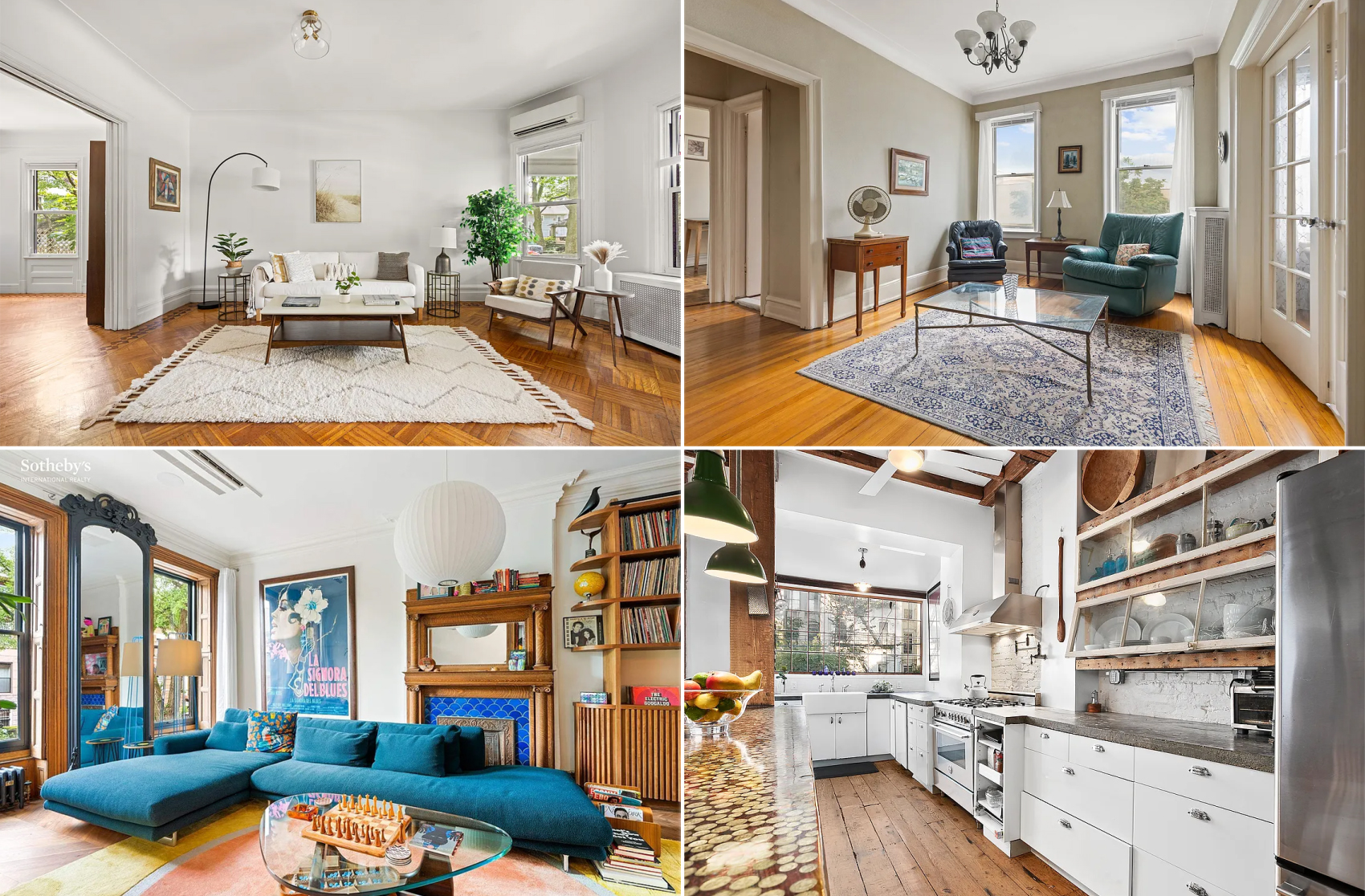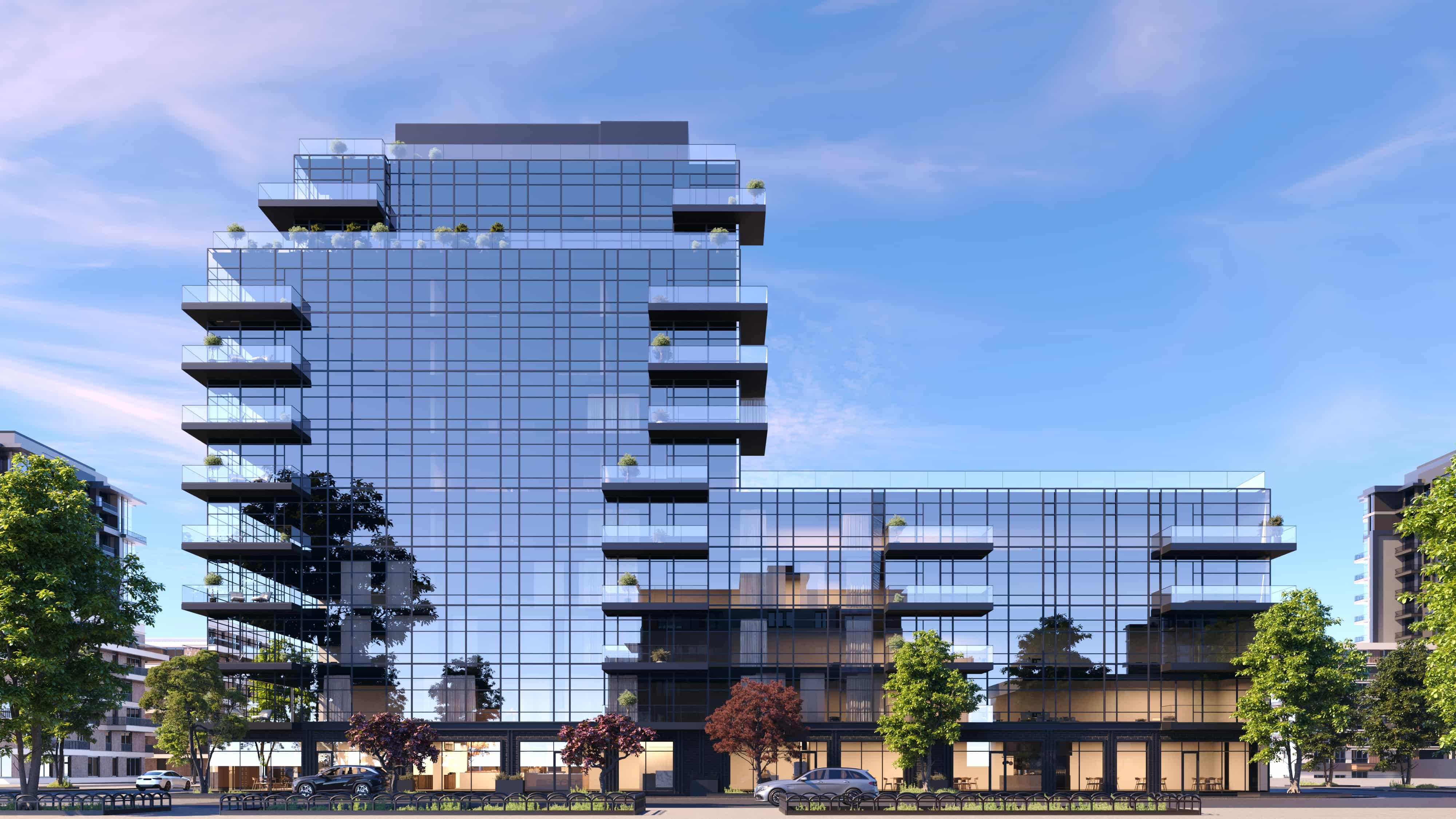Corcoran '07 Market Report: Brooklyn's Still Up
The Corcoran Group released its year-end market data today, and the brokerage’s stats show the ’07 Brooklyn market making healthy (if not huge) gains over 2006. The median sales price on all condos and co-ops was up 7 percent last year, to $590,000, while median townhouse values rose 2 percent in ’07, to $1.2 million….

 The Corcoran Group released its year-end market data today, and the brokerage’s stats show the ’07 Brooklyn market making healthy (if not huge) gains over 2006. The median sales price on all condos and co-ops was up 7 percent last year, to $590,000, while median townhouse values rose 2 percent in ’07, to $1.2 million. The really fun part of the report, however, is its breakdown of how various neighborhoods have fared, sales- and price-wise (see chart on jump). The big winner? Brooklyn Heights, where the median price shot up 19 percent, to $1.3 million. Cobble Hill/Carroll Gardens, on the other hand, showed a median price decrease of 9 percent, going from $950,000 in 2006 to $860,000 in 2007. And Park Slope’s median price slipped from $999,000 in ’06 to $928,000 in ’07. We have a few reservations about this report, including that it doesn’t specify the total number of sales it tracks, that it only compares year-over-year values, and that it basically only covers the priciest brownstone neighborhoods—though we have to give it up for the big C for devoting so much ink to Brooklyn sales data. The article in the Times this morning about the record-setting fourth-quarter Manhattan market notes that Brooklyn’s gains were more “stable” than Manhattan’s. Brooklyn showed its maturity this year because the appreciation was much more steady, said Corcoran Group president Pamela Liebman. Anyhow, do these numbers jibe with pricing trends you’ve noticed over the past year?
The Corcoran Group released its year-end market data today, and the brokerage’s stats show the ’07 Brooklyn market making healthy (if not huge) gains over 2006. The median sales price on all condos and co-ops was up 7 percent last year, to $590,000, while median townhouse values rose 2 percent in ’07, to $1.2 million. The really fun part of the report, however, is its breakdown of how various neighborhoods have fared, sales- and price-wise (see chart on jump). The big winner? Brooklyn Heights, where the median price shot up 19 percent, to $1.3 million. Cobble Hill/Carroll Gardens, on the other hand, showed a median price decrease of 9 percent, going from $950,000 in 2006 to $860,000 in 2007. And Park Slope’s median price slipped from $999,000 in ’06 to $928,000 in ’07. We have a few reservations about this report, including that it doesn’t specify the total number of sales it tracks, that it only compares year-over-year values, and that it basically only covers the priciest brownstone neighborhoods—though we have to give it up for the big C for devoting so much ink to Brooklyn sales data. The article in the Times this morning about the record-setting fourth-quarter Manhattan market notes that Brooklyn’s gains were more “stable” than Manhattan’s. Brooklyn showed its maturity this year because the appreciation was much more steady, said Corcoran Group president Pamela Liebman. Anyhow, do these numbers jibe with pricing trends you’ve noticed over the past year?
Apartment Prices in Manhattan Defy National Real Estate Slide [NY Times]
Photo by threecee.






Also, Lou, you apparently haven’t been following dear old Harry Macklowe. He played your game with the GM Building. It doesn’t always work out perfectly. Anyone who is involved with the commercial real estate market knows this.
Speculating with your own money is fine and dandy, but it’s a whole other can of worms when you are investing the bank’s money.
1:19
Lou, you don’t know what you are talking about. You’ve described a capitalization rate.
The capitalization rate is not the same as the yield rate for the simple reason that income is very rarely fixed. You have to modify the capitalization rate to reflect the change in income (or value, such as the case may be) in the holding period.
Also, the net operating income doesn’t really tell you much of anything in this market. The only thing an investor cares about is the return on his equity. In that sense, only the equity yield rate really matters. Old school types call this the cash on cash return.
And that’s the rub – you don’t factor in the huge (I repeat HUGE) effect of debt in the real estate market. The fact you missed that indicates to me you are totally full of it and don’t know anything about valuing real estate. Stick to whatever your day job is.
Bill Thompson will be the next mayor.
2:03 – Sorry, I should have clarified.
I was refering to most of the bubble (or frothy) areas, not NYC.
The dynamics here are quite different than in many of the cities which kind of forces ppl to think less like a spectulator and more like homeowners.
For instance, in Miami, many of the completed condo towers are owned and yet no one lives there. Really, you may find one or two condo owners that actually wanted to live in the condo versus buying to flip.
You don’t see that here. The vacancy is incredibly low. There are real reasons why. One of which is that the Stock of Manhattan apts are 75% Co-ops. The Co-op boards do a much better job at figuring out who is a spectulator and prevent them from buying and keeping it unoccupied while trying to flip.
Of the Condos that have been developed in Manhattan, many of those went to foreign owners. In particular, those foreign owners buy condos because there isn’t a application and generally have a large cash down payment or buy without a mortgage.
There are a lot of reasons why NYC is not a speculator’s market but more of a homeowner’s market.
In fact, I would think that if you want to live in NYC for the foreseable future, especially if you believe this should be your home for the rest of your life, it is much better to buy because the value of homes in the future will surely outpace your income growth. That’s not speculation. That’s more of a hedge against being priced out.
Unfortunately, that cliche was used to dup naive people in many other cities. Fortunately for NYC current homeowners, it is exactly true. You will be priced out.
I actually tell people that you should buy a property here even if you think you are going to live elsewhere for a little while. As long as you think you will come back eventually. You can rent out your property and live elsewhere. Then, when you are ready to come back, at least you know you have a property and can never be priced out of the market.
Now, you may argue that the negative cashflow is crippling. But that will only be for a few short years as the rental increases over time. The question is, how badly do you wish to live here permenantly will determine if you should buy.
For many millions, the answer is that they do want to eventually live here. And for those many millions…. they really need to be homeowners in this wonderful city.
Investor Lou
The difference, 2:18 is that people were TERRIFIED about the Japanese buying up property in the U.S back in 1989.
Now people are embracing the Europeans.
It’s easier to digest since a huge majority of us are from European decent.
“The Europeans will save our Real Estate” –
substitute Japanese for Europeans and it is 1989 all over again.
you’re being ridiculous, 2:14.
so when flat screen tv’s cost 5 grand a few years ago, we should have picketed best buy and circuit city also because they cost too much?
or how about we all stand in front of union market protesting the 16 dollar chickens.
good lord you people are nuts.
just because you can’t afford something or don’t want to pay for something, does not make it overpriced. it’s overpriced for YOU.
the 23% diminished inventory in apartments in nyc over the last year indicates that quite clearly.
1:34 – Why does it need to be a fantasy.
I’m on strike right now.
Maybe we can organize a picketts in from of overpriced houses that are on the market.
My sign would read “Now is not the time to buy, wait for the market to become dry”
Alot of people are doing the wait and see. It’s those damn Europeans that are going to keep the prices from dropping.
Let’s change “The What’s” name.
You shall now be called “THE TWAT”